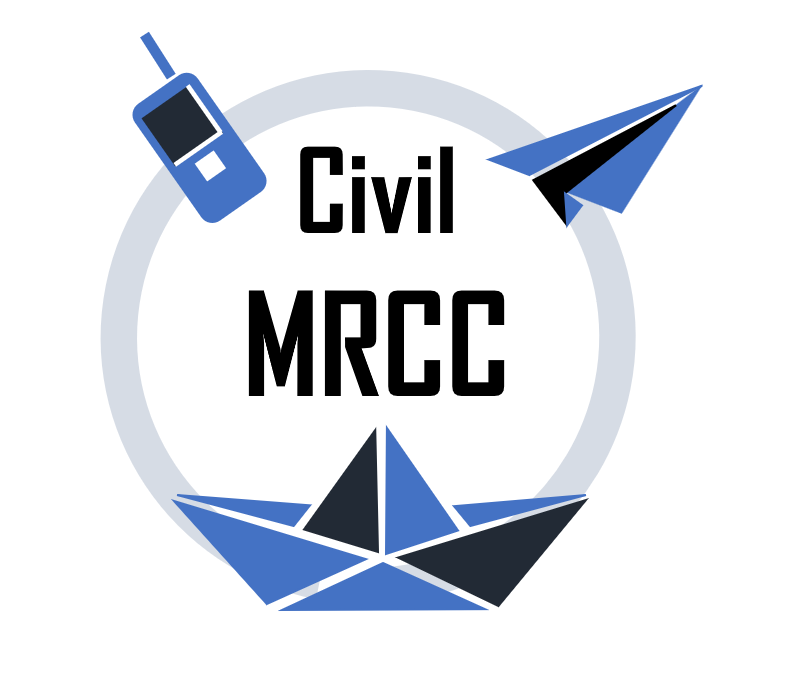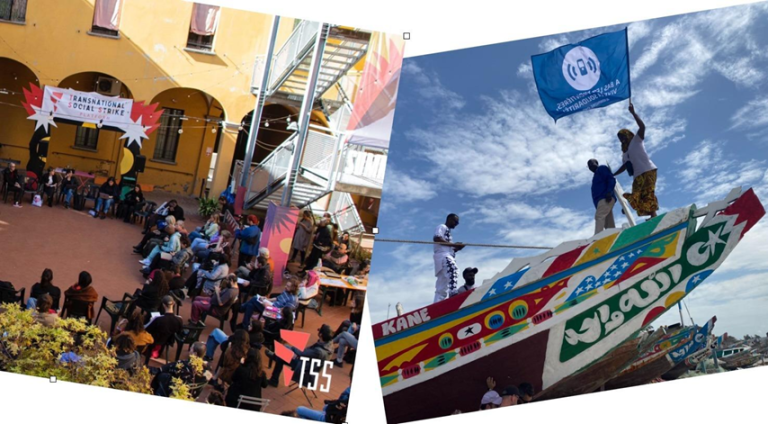“We are glad that we did this to show everybody that there are no reasons to hesitate”
Already a first time in March 2022 and one more time in May the Sea-Eye 4 transshipped survivors, who have been rescued before by merchant vessels. We asked the chairman of Sea Eye, Gorden Isler, about the background and the process of these transshipments.

Picture: Joe Rabe/sea-eye.org
Gorden, Sea Eye organized transshipments two times within last few months. What is the frame, the background, that this happened?
In both cases, merchant ships had rescued people in SAR Zone 3.
In the first case, we were watching AlarmPhone’s distress calls and saw that the MV KARINA was headed for a Libyan port next. We were in SAR 2 at the time, north of Khoms. We contacted the shipping company and had an open conversation about possible solutions. We insisted that the people should not be brought back to Libya. The shipping company and the captain decided to ask Sea-Eye 4 for help and the Ukrainian captain refused to hand over the people to the Libyan authorities, citing legal regulations. They went to meet us and a Sea-Eye team inspected the MV KARINA. It became clear that our ship was better suited to shelter the people, so the captain of MV KARINA asked the captain of SEA-EYE 4 for a transshipment. Our captain finally agreed.
The second case was a little different. The BERLIN EXPRESS (in SAR3) remained near a wooden boat for many hours and asked its responsible flag state (Germany) for assistance. The MRCC Bremen asked the SEA-EYE 4 (SAR2) for assistance. We followed this call for assistance. The MRCC Bremen succeeded in directing further ships to the scene of the incident. Therefore, the BSG Bahamas was also on scene. We contacted the two shipping companies and made it clear again that the people should not be brought back to Libya. Neither of the two shipping companies disagreed with this legal position. After BSG Bahamas succeeded in the rescue, we agreed on a meeting point for an inspection of the situation. BSG Bahamas was less suitable than SEA-EYE 4. Her captain asked for a transshipment and our captain agreed.

Sea Eye, Picture of the transshipment from merchent vessel BSG BAHMAS, May 2022
What have been the main challenges for Sea Eye to organize it?
The biggest problem was the distance to the involved ships. However, both the BSG Bahamas and the MV Karina turned around to meet us. A smaller challenge was to get in contact with the shipping companies. When we had the right contacts, they were very open to us and grateful for the assistance.
Another thing was weighing the risk. Would we get into legal trouble? Would we get there in time to prevent a push back? Can we continue to convince the shipping companies not to do it, in some cases for 24 hours? Just preventing several dozen people from being pushed back to Libya seemed reasonable enough to us. That’s why we decided to do it that way.
How did you approach the merchant vessels? Can you describe the communication?
The contact was initially over land with the shipping companies. The shipping companies coordinated the cooperation with their ships. When we were within VHF range, the captains sorted out the rest among themselves.
How did the interlocution work with the various authorities?
We adopted the email distribution lists that were already involved by Alarm Phone distress calls and added the flag state authorities that were relevant for us.
Did you hesitate to organize these transshipments because of danger of consequences by European authorities? That perhaps Italian authorities will not accept the disembarkation? Or even will try to criminalize you with the standard accusation of „facilitation of illegal migration“ because the people were already rescued?
These concerns have been with us for many years. In every rescue. No matter what the circumstances. We had a lot of time on the way to the rendezvous to discuss this in the legal team, but also with the legal team of Sea-Watch and among ourselves. All this did not happen suddenly, but step by step. We are glad that we did this to show everybody that there are no reasons to hesitate. Our flag state has not reprimanded us for this at any point. On the contrary. One was glad, so to speak, that it had been tried.
Do you think, your quick offering for transshipment might contribute to a situation, that more Merchant Vessels will rescue with less fear, that afterwards they cannot disembark the people?
Yes, I think it is important to approach the shipping companies and signal this basic willingness. Open communication and close cooperation could save many lives and prevent refoulements.
So, you would do it again another time?
If the situation demands it, it is within our capabilities, and we can achieve the two goals listed above, we will do so.
Thank you very much for this interview!



